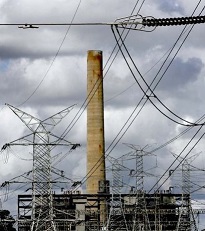Lines review launched
 The federal government has launched a review of planning processes for high-voltage transmission lines.
The federal government has launched a review of planning processes for high-voltage transmission lines.
Federal Climate Change and Energy Minister, Chris Bowen, has acknowledged the need for improvement in order to ensure that communities in the path of these projects are better heard and receive greater benefits.
The push for the review comes as grassroots resistance intensifies against crucial power lines required for the transition to renewable energy.
Among the controversial projects are VNI West, a $3.6 billion transmission line connecting Victoria and New South Wales, and HumeLink, a $3.3 billion cable essential for the integration of the massive Snowy 2.0 pumped hydro project into the grid.
While sympathising with community concerns regarding the impact of these transmission links, Bowen said they are important to Australia's decarbonization efforts.
The Australian Energy Market Operator (AEMO), responsible for managing the country's major power systems, says a significant expansion of the transmission network is needed to support the energy transition.
AEMO's blueprint for the transition outlines the requirement for over 10,000 kilometres of new high-voltage lines to connect wind, solar, and backup power sources replacing retiring coal-fired plants.
However, the plan is facing increasing resistance, resulting in delays and potential cost overruns for several transmission projects.
Critics, including researchers from the Victoria Energy Policy Centre, have raised concerns about the analysis justifying these projects.
They argue that flawed assessments overlook potential storage options and fail to consider the heightened risk of bushfires and grid vulnerabilities associated with high-voltage power lines.
Recognising the challenges, AEMO's CEO, Daniel Westerman, acknowledged that the existing transmission network is becoming increasingly congested.
In an effort to address local opposition, New South Wales Energy Minister, Penny Sharpe, has proposed exploring the feasibility of underground options for the HumeLink project.
“Just because it's difficult doesn't mean that we don't have to get on with it, but [we want to] bring communities with us with better engagement and better community dividends than has been the case historically in Australia,” Bowen said.
The review is expected to be completed within six months.








 Print
Print